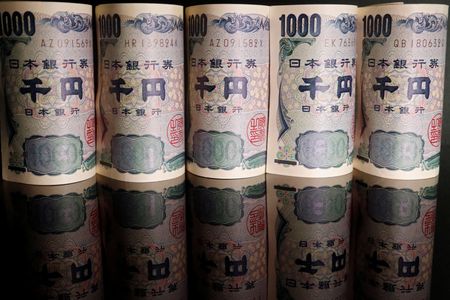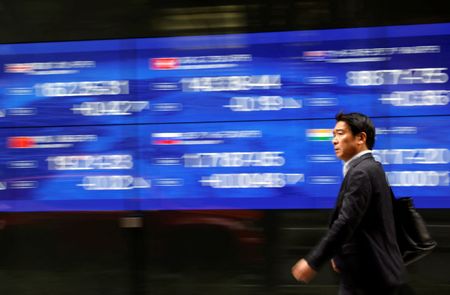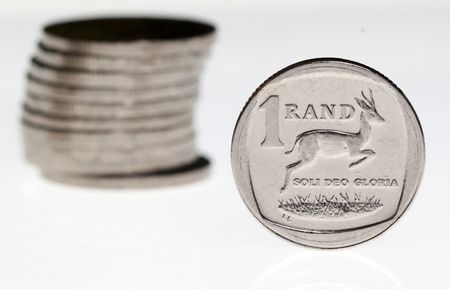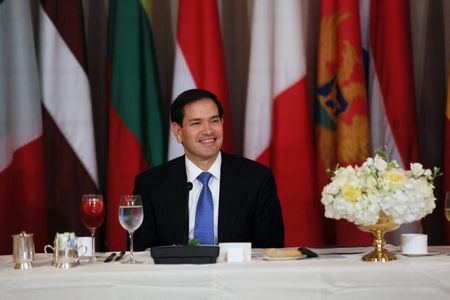By Stefano Rebaudo and Kevin Buckland
(Reuters) -The dollar rose against the yen and slipped versus the euro on Monday as investor focus temporarily shifted to political developments in Japan and the euro area, while lingering concerns about U.S. credit risks weighed on sentiment.
The yen weakened as hardline conservative Sanae Takaichi looked poised to become Japan’s first female prime minister following a decisive parliamentary vote on Tuesday.
Her expected premiership, backed by a new coalition with the right-wing Japan Innovation Party, has raised investor concerns over potential fiscal expansion, which could weigh on the Japanese currency.
“Market participants will now be watching closely to see what fiscal plans are put together by the new coalition government,” said Lee Hardman, senior currency economist at MUFG.
“Japan Innovation Party’s own fiscal plans have been described as ‘moderately expansionary’,” he added.
The dollar rose 0.1% to 150.75 yen, after hitting 151.20 earlier in the session.
Bank of Japan board member Hajime Takata, who voted against keeping rates steady in September, reiterated on Monday his case for resuming rate hikes, providing some support for the Japanese currency.
Japan’s benchmark Nikkei stock index closed more than 3% higher, hitting an all-time peak on expectations of an expansionary fiscal policy. [.T]
The BOJ next decides monetary policy on October 30, with market-implied odds of a quarter-point rate increase at 23%, according to LSEG data.
The euro edged higher against the dollar as political tensions in France eased, but investor caution lingered.
Markets remain reluctant to fully price out French risk from the euro, with the government’s decision to freeze pension reform offering only a temporary political breather while complicating already fragile budget talks.
The euro was up 0.1% at $1.1664.
“This week the focus should stay on the U.S., and a further souring of credit sentiment could send the euro on a path to $1.180,” said Francesco Pesole, a foreign exchange strategist at ING.
Market participants are closely watching Wall Street futures, which were up 0.34%. Indexes ended higher on Friday as investors took comfort in reassuring remarks from U.S. President Donald Trump on China, while upbeat quarterly results from regional banks helped ease concerns over credit risks.
The Australian dollar rose on Monday, cheered by reasons to be a bit more upbeat on top trade partner China, with data showing its economy reasonably resilient to U.S. tariffs and Trump toning down some of his trade rhetoric.
Official data on Monday showed China’s economy grew 1.1% in the third quarter, to top forecasts, while industrial output also beat with a rise of 6.5%. Although the 4.8% annual growth rate marked the weakest pace in a year, it kept the country on track to meet its official growth target of around 5%.
The Aussie gained 0.3% to $0.6504 on Monday.
China’s yuan was little changed in offshore trading at 7.1235 per U.S. dollar.
“There’s an element – to use the Cold War language – of mutually assured destruction when it comes to total rare earth exports curbs and 100% tariff rates, with both the U.S. and Chinese more or less acknowledging that,” said Kyle Rodda, a markets analyst at Capital.com.
“As a result, the markets are pricing in that things will de-escalate,” Rodda added. “However, the markets are likely to remain jittery until such backdowns are explicitly announced.”
(Reporting by Stefano Rebaudo and Kevin Buckland; Editing by Sam Holmes and Emelia Sithole-Matarise)











